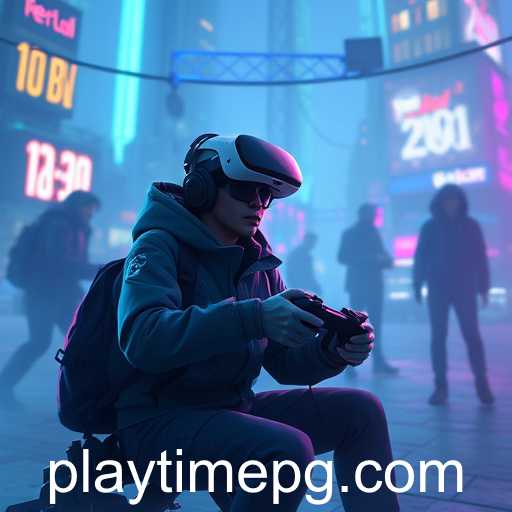Exploring the intersection of gaming and culture, highlighting the latest trends and technologies shaping the industry.
As we delve deeper into the 2020s, "Playtime" has taken on a whole new meaning in the realm of digital entertainment and cultural dynamics. No longer confined to the simple joy of gaming, playtime has evolved into an intricate blend of technology, storytelling, and cultural expression. This transformation is not only redefining the gaming industry but also influencing societal trends and interactions.
Playtime in 2025 is characterized by immersive experiences powered by cutting-edge technologies such as virtual reality (VR) and augmented reality (AR). These advancements allow players to step into alternate worlds, offering a sense of presence and immersion that was once the domain of science fiction. For instance, games like "The Lost City Chronicles" and "Realm of Echoes" have set new standards with their lifelike graphics and interactive environments, captivating audiences worldwide.
Beyond technological advancements, the cultural impact of gaming continues to expand. Games have become a significant medium for storytelling, with narratives that challenge players' perspectives on societal issues. Titles like "Refuge" and "Quantum Conscience" have received critical acclaim for their thought-provoking storylines that tackle themes of identity, morality, and choice. This narrative depth not only entertains but also fosters empathy and understanding among players from diverse backgrounds.
The social aspect of gaming has also undergone a transformation. Online platforms and multiplayer games serve as virtual meeting grounds, where individuals from across the globe interact, collaborate, and form communities. These connections often transcend barriers of language and geography, creating a space for global dialogue and camaraderie. Esports, for example, has grown into a billion-dollar industry with massive followings, rivaling traditional sports in both viewership and cultural significance.
Moreover, the democratization of game development tools has empowered a new generation of creators, leading to a surge in indie games that offer unique and often experimental gameplay experiences. Platforms like "GameCrafters" are enabling these independent developers to bring their visions to life, challenging mainstream notions of what a game can be.
As we look to the future, the synergy between gaming and culture will likely grow stronger. With technology evolving at an unprecedented pace and societal values shifting, the way we perceive playtime will continue to blur the lines between reality and imagination, entertainment and education, individual exploration and collective experience.




